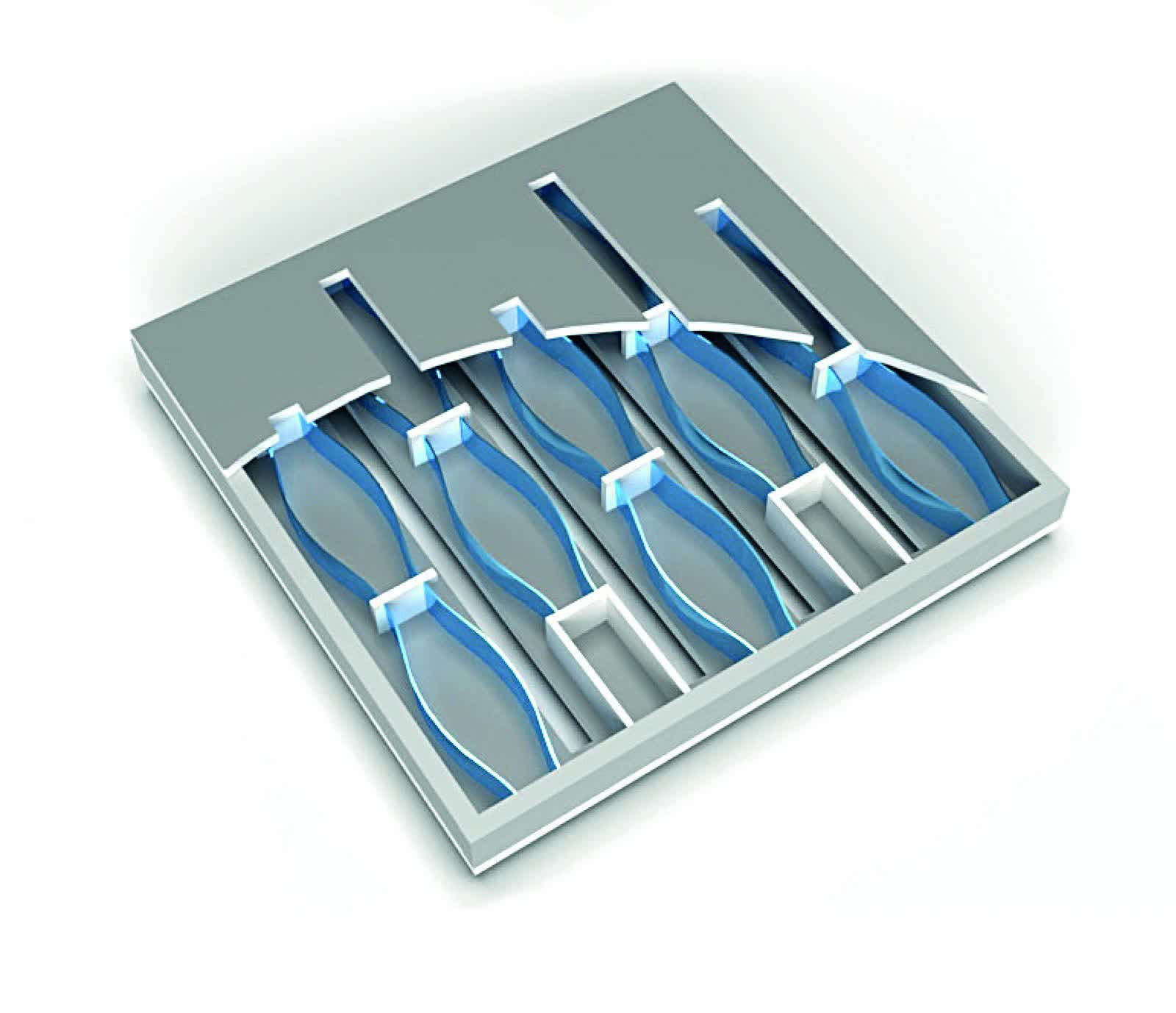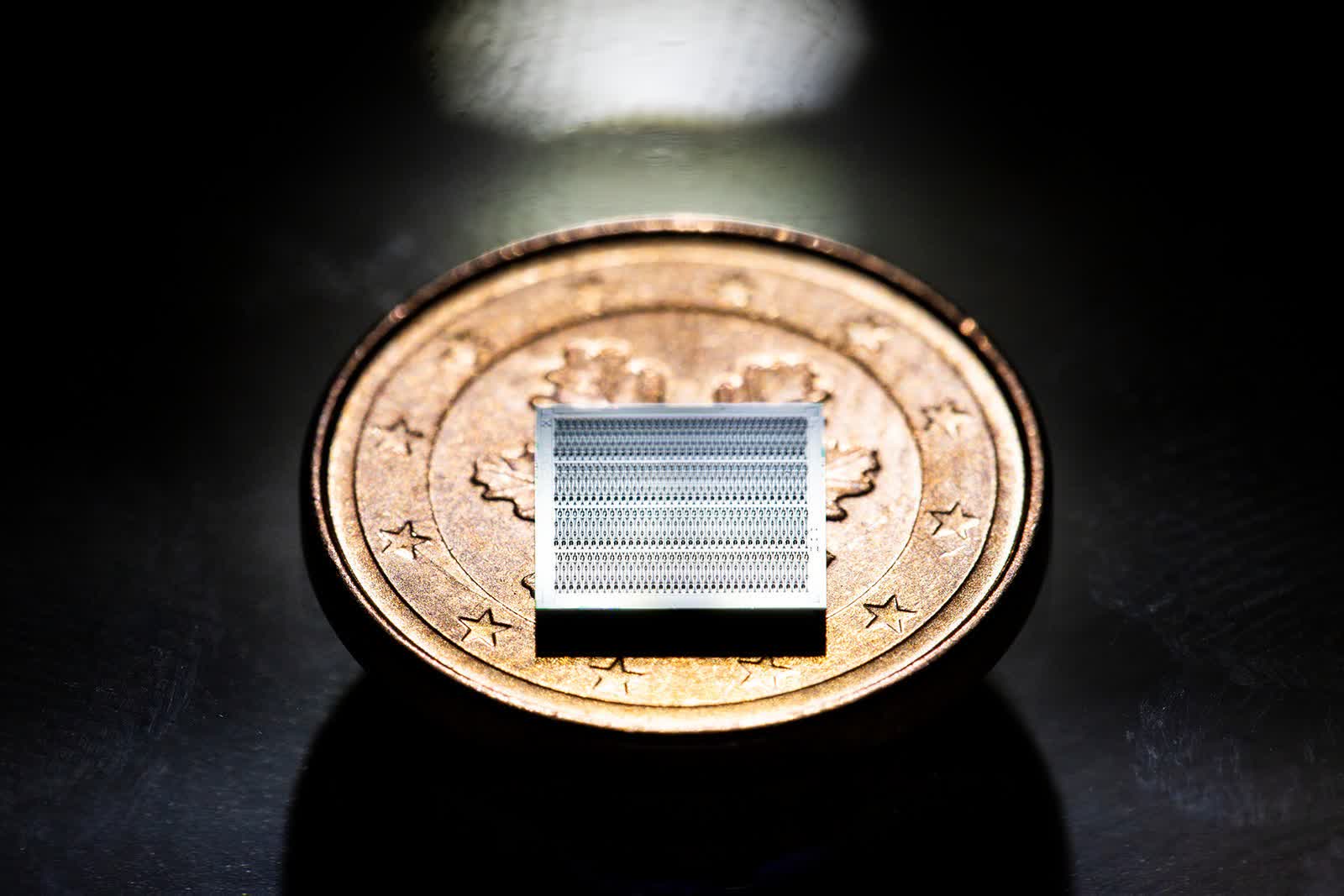The bleeding edge: Earbud technology has advanced considerably in the last several years, but one thing that remains the same — the speakers. Although very small, earbud speakers still operate much like those in your TV or stereo. They require a membrane, magnet, and a power source to drive them. Other than making them more compact, they have not changed much over the years.
German audio startup Arioso Systems has a new prototype micro-electromechanical system (MEMS) speaker that does not need a membrane or magnet. Better yet, it’s small, flat, and square like a microchip and uses less energy to produce sound.
The “microspeaker,” dubbed the Nanoscopic Electrostatic Drive or NED for short, is a spinoff of a larger speaker from the Fraunhofer Institute for Photonic Microsystems. It is 10 to 20 millimeters square, and while Arioso did not mention a thickness, if diagrams are to scale (below), it can’t be more than one or two millimeters thick.

The NED is made entirely from silicon and is produced using standard CMOS processes. With fewer moving parts and no assembly requirements, NEDs should be cheaper to produce than standard drivers, which use more expensive piezo materials and complicated manufacturing processes.
One might think NEDs could not produce adequate sound levels for such a tiny device. However, the company claims that in-ear decibel levels for the 10mm version peek at around 120db with “optimum sound quality.”
Inside the wafer are several flexible columns 20 nanometers in length. As voltage is applied from an audio source, the beams bend toward and away from each other. These fluctuations push air out of small slots in the top and bottom of the NED. The resultant air pressure works within the ear to produce audible frequencies.

The NED is up to 10 times smaller than conventional magnetic drivers. When used in contemporary earbud designs, Arioso says that the saved space could allow manufacturers to add more functionality, including instantaneous language translation, health-monitoring features, or the ability to pay for purchases using voice commands.
They would also be perfect for even smaller and cheaper hearing aids. Additionally, the minimal size means they consume less power than regular speakers, translating to longer battery life for wireless buds.
Arioso just finished a seed-funding round, closing at 2.6 million euros. It expects to scale the prototype to the pilot phase within two to three years. It has already entered discussions for a second round of funding to bring the device to market. The startup hopes to raise 10 million euros.
